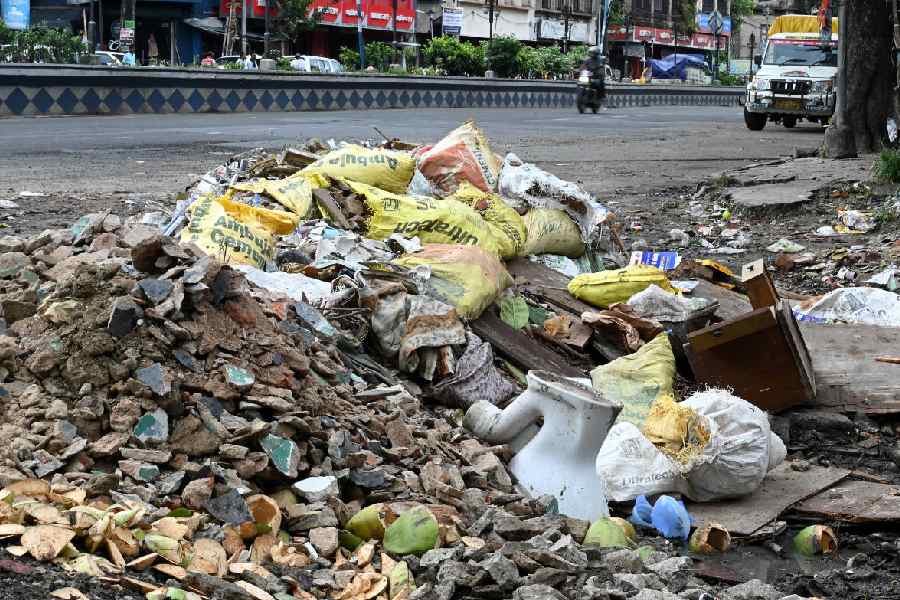The number of dengue cases has been rising in and around Calcutta, but the city and its surroundings are still not out of the grip of viral fever.
Doctors said that in many cases they are advising blood tests because it is difficult to diagnose clinically whether a patient running a temperature is suffering from dengue, malaria or common viral infections, the ones caused by the adenovirus, influenza viruses and non-Covid corona viruses.
Doctors said the infections are not too severe in most cases, but they are advising a few patients to get admitted to hospital.
A state health department official said dengue cases are being reported from North 24-Parganas and Calcutta.
Around 2,000 dengue cases have been detected in and around Calcutta since January. “The number was almost the same last year,” the official said.
“We are getting a few dengue cases, but most fever patients turning up at our clinic are suffering from influenza or infections caused by other respiratory viruses,” said Chandramouli Bhattacharya, infectious disease expert at Peerless Hospital.
“It is easier to identify the cause as a common viral infection if the symptoms are fever, runny nose, sneezing and cough.”
However, a number of patients are also presenting symptoms such as body ache, headache, nausea and diarrhoea, along with fever. “These symptoms are common for dengue as well as other viral infections. In those cases, we are advising blood tests,” Bhattacharya said.
According to him, a person running a temperature should get a blood test done on the third day since the onset of fever.
Amitabha Saha, head of critical care at AMRI Hospitals Mukundapur, said three of his patients had tested positive for dengue in the past five days.
“Mostly, I’m getting patients suffering from respiratory infections caused by adenovirus or influenza viruses. There are a few suffering from conjunctivitis, too,” said Saha.
Apurba Ghosh, director of the Institute of Child Health, said half the patients from the city at his clinic are suffering from fever.
“In 70 per cent of the cases, the children are suffering from viral infections like adenovirus. We are getting a few dengue cases, too. In cases where it is apparent that the child is suffering from viral infections — the symptoms including red eye or cold and cough — I am not recommending tests. In cases where we are not clear about the cause of the fever, we are advising tests,” said Ghosh.
The number of tests for dengue and malaria at diagnostic centres in the city has gone up.
“Dengue and malaria tests have increased by 10 to 15 per cent, but there is only a slight increase in the positivity rate,” said Abhirup Sarkar, lab director, Suraksha Diagnostics. “In most cases, the fever is caused by the adenovirus, influenza A subtype H3N2 and influenza B,” he said.
At hospitals, too, the flow of patients with fever has increased at the OPDs.
“The flow of fever patients at the OPDs has gone up. And three or four such patients are getting admitted every day now. They are diagnosed with influenza, para-influenza and adenovirus infection, among others,” said an official at AMRI Dhakuria.
“Doctors are advising influenza vaccine, particularly for those with conditions such as chronic obstructive pulmonary disease.”
